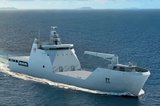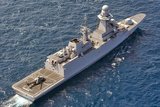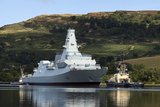US senators raise Russian concerns over unprepared Coast Guard fleet
Polar Star heavy icebreaker was commissioned in 1976 and has been in service for nearly five decades. (Photo: US Coast Guard)
US lawmakers have expressed concern regarding the US Coast Guard’s (USCG) small and ageing polar inventory and how it could impact the protection of the US Arctic territorial waters. Senators have raised the alarm on the branch’s naval capabilities arguing that it would not succeed against the Kremlin’s fleet.
The service currently operates two icebreakers – Polar Star and Healy – the only branch vessels capable of operating in extreme cold temperatures. Serving predominantly the McMurdo Station in Antarctica, the Polar Star heavy icebreaker was commissioned in 1976 and has remained in operation far beyond its expected service life.
Already have an account? Log in
Want to keep reading this article?
More from Naval Warfare
-
![Turkey targets Italian market with strategic partnership on USVs and hybrid platforms]()
Turkey targets Italian market with strategic partnership on USVs and hybrid platforms
Havelsan, VN Maritime and Piloda Defence will collaborate to develop and integrate a range of maritime solutions with a view to secure a first procurement contract in Italy in the first half of this year.
-
![US Coast Guard’s Arctic Security Cutter ramp-up signifies turning point in Polar operations]()
US Coast Guard’s Arctic Security Cutter ramp-up signifies turning point in Polar operations
The USCG recently announced the award of a contract to Davie Defense for the supply of five ASCs, marking a major step in the acquisition programme as the US grows its presence in the Arctic.
-
![UK ‘Hybrid Navy’ steps up as Norway cooperation reinforces Arctic strategy]()
UK ‘Hybrid Navy’ steps up as Norway cooperation reinforces Arctic strategy
As Russia commits billions to new warships and stealth submarines, the UK is reshaping its strategy with expanded troop deployments, shared frigate fleets and a shift towards uncrewed platforms.





















